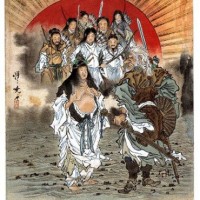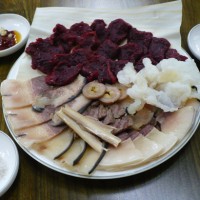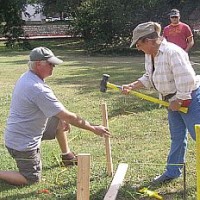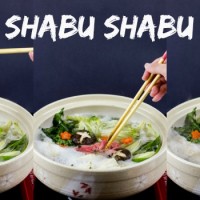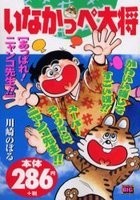Monthly Archives: July 2015
Friday: Kojiki (「乞食」ではなく『古事記』ですヨ!!) #20
07/10/2015 blog
Tenson Koorin (てんそんこうりん) (Two Pictures of Tanson Koorin) “Tenson Koorin” means that Ninigino Mikoto (ににぎのみこと), who is among the Heavenly Gods, came down to Ashiharano Nakatsukuni (あしはらのなかつくに), the Earthly World, to rule the world. Ninigi is one of the two sons of Ameno Oshihomimino Mikoto (あめのおしほみみのみこと), who is among the sons of Amaterasu (あまてらす). Ninigi’s mother’s name is Yorozuhata Toyoakitsushihimeno Mikoto (よろずはたとよあきつしひめのみこと), who is a daughter of Takami Musuhino Kami (たかみむすひのかみ). Originally Amaterasu planned to have Ameno Oshihomimino Mikoto rule Ashiharano Nakatsukuni, but Oshihomimi became a father of Ninigi while waiting for his dispatch to Ashiharano Nakatsukuni. Now Oshihomimi suggested his mother that she send Ninigi to the Earthly World instead …
Thursday: Japanese Food (日本の食べ物)
07/09/2015 blog
Whale Cuisine (クジラりょうり) (Fancy Menu at Specialized Restaurants) Not all Japanese like whale cuisine (くじらりょうり). Since it is delicacy, people doesn’t eat much. The Japanese appreciate whales, they don’t kill more than necessary numbers of whales. It is like Native Americans didn’t kill more than enough numbers of buffalos. Neither of them hunt overly. Never. In addition, they never hunt for recreation. Hunting is a way to survive. Almost all the parts of whales can be food or used for other purposes like the chart below. Some parts for food is so affordable that they are cooked at public schools to be served for school lunches. You see …
Wednesday: Nihon-no Manga (日本の漫画)
07/08/2015 blog
Shima Kosaku Series (しまこうさくしりーず) This comic was written by Hirokane Kenshi (ひろかねけんし) and its whole series ran from 1983-1992 in Gekkan Morning (げっかんモーニング). Hirokane used to work for Panasonic and what was going on in Panasonic was depicted in this comic/anime through Hirokane’s eyes. This is NOT for young kids, but for adults – especially “business men” called “Salary Man (さらりーまん)” in Japanese. Since Hirokane showed Panasonic or any corporate giants’ culture in detail and how Shima Kosaku got promoted from Section Chief to the Company President successfully, most Japanese business men fell in love with this comic. Accordingly, the movie versions came out as well as TV shows. They were both quite …
Tuesday: Nihon-no Kotowaza
07/07/2015 blog
Deru Kui-wa Utareru (でるくいはうたれる) [Vocaburary] Deru: project; protrude; jut out/stick out. Kui: a stake; a post; a pile; a picket. Utareru: being hit; being struck; being beaten; being smacked. [Translation] Envy will pursue merit as its shade./ A tall tree catches much wind./ Forwardness will cause trouble./ Greatness has its penalties.
Monday: One Point Nihongo Clinic
07/06/2015 blog
“Ko (こ),” “So (そ),” “A (あ),” “Do (ど)” #1 Special uses of “So (「そう」)” “So or Soo (「そ」または「そう」)” has a various usages as you may know. I would like to show you some of the special uses, which come in handy. Today we will discuss one of them – “So(o).” In daily life, you have a lot of pleasant and exciting events while you sometimes those unplesant or dipressing. Still, you always have someone to help you understand or figure out what you didn’t know without his help. You: “I am thinking that I’d accept the headhunter’s offer, which sounds pretty good. I am excited to get what I have …
Friday: Kojiki (「乞食」ではなく『古事記』ですヨ!!) #19
07/03/2015 blog
Takemikazuchi (たけみかづち) Made It Happen Takemikazuchi (たけみかづち) and Amenotorifune (あめのとりふね), who were sent from Takamagahara (たかまがはら), said to Okuninushi (おおくにぬし), “Your son, Kotoshironushi (ことしろぬし), swore he would never defy Takamagahara. Is there anyone that might go against Takamagahara’s decision?” Okuninushi humbly said to both gods from Takamagahara, “I have another son called Takeminakatano Kami (たけみなかたのかみ). That is the only one that might protest to the Heavenly gods.” While his father was talking to the messengers from Takamagahara about him, Takeminakata came back with a huge rock, which could be pulled by a thousand people, juggled by his hands. Takeminakata said triumphantly, “Who is timidly whispering when visiting my …
Thursday: Japanese Food (日本の食べ物)
07/02/2015 blog
Shabu Shabu (しゃぶしゃぶ) (Ingredients) Shabu Shabu (しゃぶしゃぶ) is one of the Nabe Mono (なべもの) , which are cooked in quite a pot. Usually Nabe Mono are enjoyed during the winter season. People get together, surround the pot, and eat together while cooking by themselves. (Wikimedia: https://en.wikipedia.org/wiki/Shabu-shabu) Shabu Shabu is cooked at home and served in its speciality restaurants all over Japan. Depending where you live, ingredients are slightly different from one another, but the key is the freshness of beef, which is thinly sliced. The thinly sliced beef is the kind of meat you have hard time getting except the places where lots of Japanese grocery stores like Los Angeles …
Wednesday: Nihon-no Manga (日本の漫画)
07/01/2015 blog
Inakappe Taisho (いなかっぺたいしょう) This is another Judo animation aired on TV 1970 through 1972. “Inakappe” means “anybody from a rural country in Japan.” Tokyoites and all other city dwellers used this term as the derogatory. “Taisho” literally means “the head of a group, an organization, or a family,” but in this context, as “Inakappe,” it is used to make fun of the main character – a boy named Daizaemon. The plot from Wikimedia goes: A lively boy named Daizaemon in traditional Japanese clothing comes with various kinds of animals to the capital of Tokyo. He has a funny habit of dancing whenever he hears music. He visits a …

